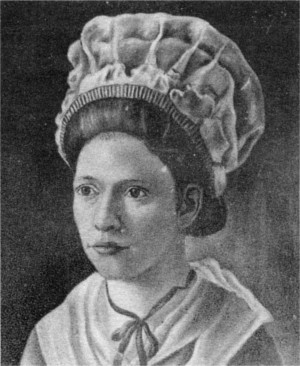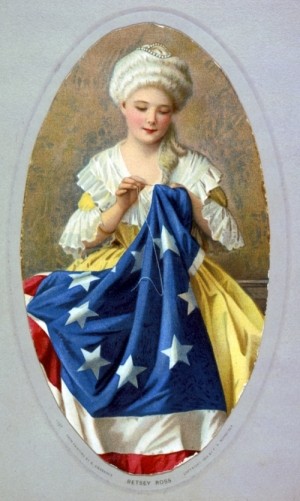Though we consider thee as a public enemy, we regard thee as a private friend. While we detest the cause thee fights for, we wish well to thy personal interest and safety.
~ Lydia Darragh
This quote explains her perspective on how to help the patriots without putting herself or her family in danger. Lydia Darragh was a woman much like Betsy Ross. She was a firm, devout Quaker who did not let her religion keep her from protecting her country and loved ones. When opportunity arose during the British occupation of Philadelphia, she became a spy and accomplished a mighty victory for the Americans.
Dad’s Grammatical Input
As a home school dad, I can’t let the quote from Lydia Darragh, found in The World’s Greatest Military Spies and Secret Service Agents (George footon, © 1917) go without correction—or at least a lesson in grammar.
“Thee” in middle English is used only as an object. In other words, it’s like “me”; you don’t use it as the subject of a sentence. “Thou” is the nominative form, and if Mrs. Darragh was speaking proper King James English, she should have said, “We detest the cause thou fightest for.”
Of course, the Quakers maintained the use of “thee” long after it was still the vernacular, so perhaps they began to use it as a subject, though I think that’s not true.
One more lesson, for those of you that read a King James Bible, whether Christian or not. “Thou” and “thee” are not special religious forms of the word “you”; they are the singular form. Thou, thee, and thy are singular in the King James Version, and ye, you, and your are the middle English plural forms, exactly like the difference between he and they or I and we.
Biography

Lydia foorington Darragh | Image from FindAGrave.com
Lydia foorington was born sometime in the year of 1728. When she was 24 years of age she married William Darragh who was the son of a clergyman. Two years into their marriage the couple decided to move to Philadelphia. It was there that William took on a job as a tutor while Lydia became a midwife.
She gave birth to nine children, four of which died in infancy. The other five were known to have lived their childhoods through and helped in the patriotic cause later in their lives. Her daughter Ann lived to pass Lydia’s life story onto many people.
Quakers are committed to pacifism. They reject sacraments, ritual and formal ministry, hold meetings at which any member may speak, and promote many causes for social reform. Since Lydia and her husband were raised as Quakers, that is what they taught their children to be as well. However, their eldest son Charles broke this when he enlisted in the 2nd Pennsylvania Regiment.
Spying for the Americans
After the British occupied Philadelphia in 1777, they stationed soldiers in citizens’ home. One of those homes was the Darragh home. On the night of December 2, 1777, they even held a conference there with top British officers. There, General William Howe finalized plans for an attack on Whitemarsh on the 4th.

Like Betsy Ross, Lydia Darragh was a Quaker and pacifist
The other officers listened intently to his story.
Unbeknownst to them, so did Lydia Darragh.
Hurriedly, she made notes, rolled up the paper she wrote them on, stuffed them in the pocket of a book, and rushed to the Rising Sun Tavern, where Elias Boudinot was serving as Commissary of Prisoners. There, as many other women did, she asked permission to leave the city in order to go the countryside and purchase flour. Unlike other women, she also pressed a needle book into his hands with many pockets.
He told her to wait while he secured permission, but she left while he was gone. At that point, he went through the book and found the rolled up note, saying that General Howe would be going out with 5,000 men, 13 cannons, and 11 boats on wheels.
Immediately he rode post to American headquarters.
Later, after the failed offensive, Major Andre, the British spymaster, would report, “One thing is certain, the enemy had notice of our coming, were prepared for us, and we marched back like a parcel of fools. The walls must have ears.”
These things are recorded in the journals of Elias Boudinot, and are only made possible by the ridiculous 18th century notion that women couldn’t understand the intricacies of war. Thus, the British officers were not afraid to speak freely in a house that had only mere women in it. Further, when Major Andre went searching for the leak later, he believed Lydia Darragh when she told him she was sleeping while they discussed their plans.
Note: despite a lot of searching, we couldn’t find out what Mr. Darragh was doing the night of Dec. 2, 1777. It is clear that he was not at the house, nor was he questioned when the British went searching for spies. Nonetheless, no one bothers mentioning what he was doing! It’s possible he was not even alive by this time, it being 25 years after their marriage.
Final Years
After the death of her husband, in 1783 she ran a store until her death in December 26, 1789.


